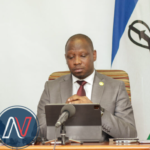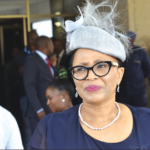Lehlohonolo Motšoari
The Ministry of Foreign Affairs and International Relations has revealed a distressing situation affecting an estimated 3,000 Basotho students stranded in India, unable to meet their university tuition fees.
“An estimated number of about 3,000 Basotho students have found themselves in rather unfavorable situations in India because they are unable to balance the tuition fees they owe to various universities in that country due to financial implications,” to Kutloano Pheku, the ministry’s principal communications officer confirmed to Newsday yesterday.
Pheku highlighted the desperation of parents unable to secure financial assistance from the National Manpower Development Secretariat (NMDS), often resorting to risky measures.
“Most of these parents would even sell their properties to cover some of the institutes’ expenses and during the academic journey fail to pay their remaining balances,” he explained.
He further underscored the dire consequences: “When this happens, these students fall into vulnerable situations including being used to smuggle drugs and prostitution; and in such businesses, their documents are confiscated by their bosses and this further worsens their problems and cannot leave the foreign land.”
Minister of Foreign Affairs and International Relations, Lejone Mpotjoane, speaking at a press briefing last Friday, expressed grave concerns over the exploitation of Basotho students through private international scholarships.
“These scholarships, primarily targeting studies in India particularly, have left many students in vulnerable and dangerous situations,” Mpotjoane cautioned. He highlighted the misleading terms of these partial scholarships, which promise to cover 50 to 60 percent of fees but often result in students facing unexpected financial burdens upon arrival.
Mpotjoane emphasised the severity of the issue: “Most of these students find themselves in extremely vulnerable positions when they arrive in countries like India. They are often stranded and unable to leave without paying substantial funds they are told they owe to the institutions.”
In response to these alarming developments, the government is taking decisive action. Mpotjoane announced collaboration between the Ministry of Foreign Affairs, the Ministry of Education, and law enforcement agencies to address and mitigate this growing problem.
“We are working closely with other concerned departments to tackle this issue head-on,” Mpotjoane emphasised. He urged students to verify scholarship offers with the NMDS to avoid falling victim to fraudulent schemes.
Highlighting the government’s commitment, Mpotjoane stressed the importance of public awareness in combating these fraudulent activities: “The first step towards addressing this problem is involving the media to spread the word and ensure that students and their families are informed about the risks and necessary precautions.”
One student, who studied in India and has since returned home, revealed the deceptive practices involved in an interview with this publication yesterday.
“Sometimes what they tell us is 50 percent of the tuition fee is actually the full amount. We think we’ve only paid 50 percent when, in reality, we’ve covered the full fees ourselves,” the student explained.
According to the 2023 Trafficking in Persons Report: Lesotho by the U.S. Department of State, Lesotho is still struggling to fully meet the minimum standards for the elimination of trafficking. However, the country is making significant strides toward improvement.
The report highlighted that the government has shown notable progress compared to the previous reporting period, even considering the challenges posed by the COVID-19 pandemic. As a result, Lesotho remains on Tier 2, a classification for countries that do not fully comply with the minimum standards but are making considerable efforts to do so.
“The government increased funding for anti-trafficking law enforcement, victim protection, and awareness efforts,” the report stated. “The government appointed a prosecutorial focal point for trafficking cases and established two new district-level multisectoral committees (MSC).”
Despite these advancements, the report pointed out several critical areas where Lesotho still falls short. “The government did not meet the minimum standards in several key areas,” it noted. “The government continued to rely on one NGO to provide all services to trafficking victims without dedicating sufficient government funding, and shelter options remained limited.”
Summary
- The Ministry of Foreign Affairs and International Relations has revealed a distressing situation affecting an estimated 3,000 Basotho students stranded in India, unable to meet their university tuition fees.
- “An estimated number of about 3,000 Basotho students have found themselves in rather unfavorable situations in India because they are unable to balance the tuition fees they owe to various universities in that country due to financial implications,” to Kutloano Pheku, the ministry’s principal communications officer confirmed to Newsday yesterday.
- “The first step towards addressing this problem is involving the media to spread the word and ensure that students and their families are informed about the risks and necessary precautions.

Your Trusted Source for News and Insights in Lesotho!
At Newsday Media, we are passionate about delivering accurate, timely, and engaging news and multimedia content to our diverse audience. Founded with the vision of revolutionizing the media landscape in Lesotho, we have grown into a leading hybrid media company that blends traditional journalism with innovative digital platforms.










